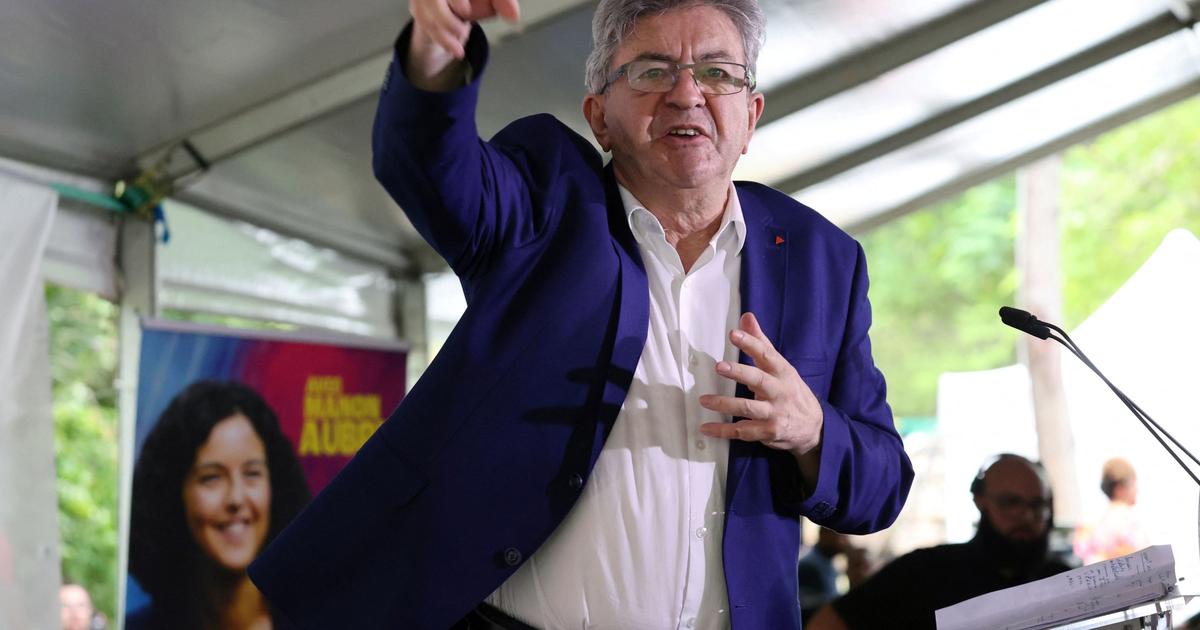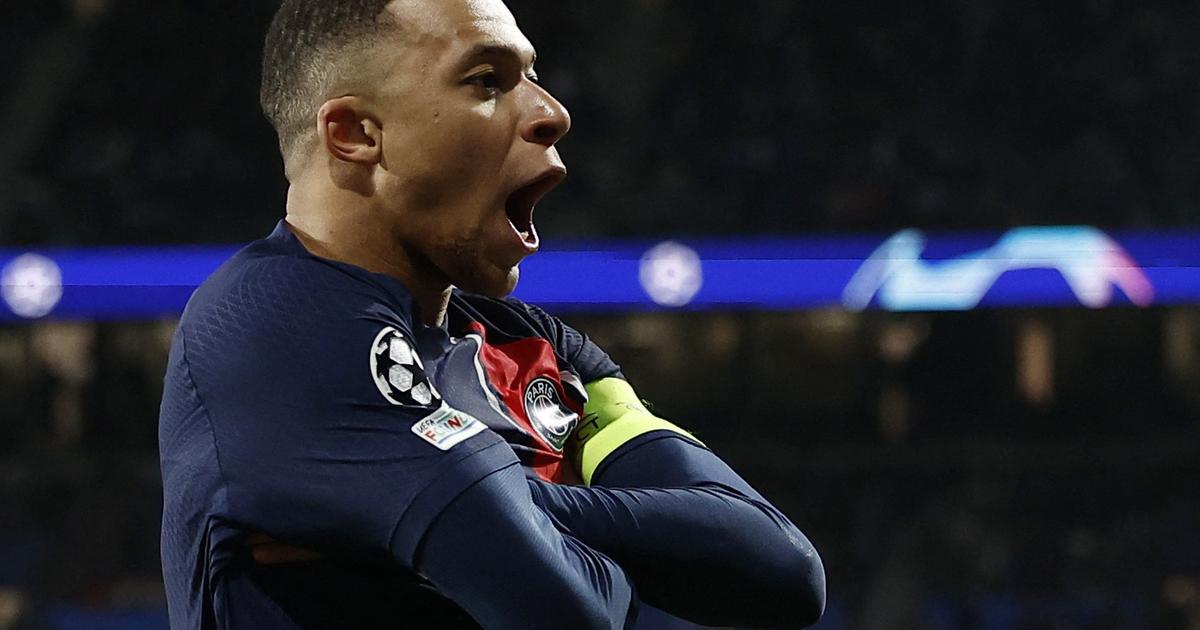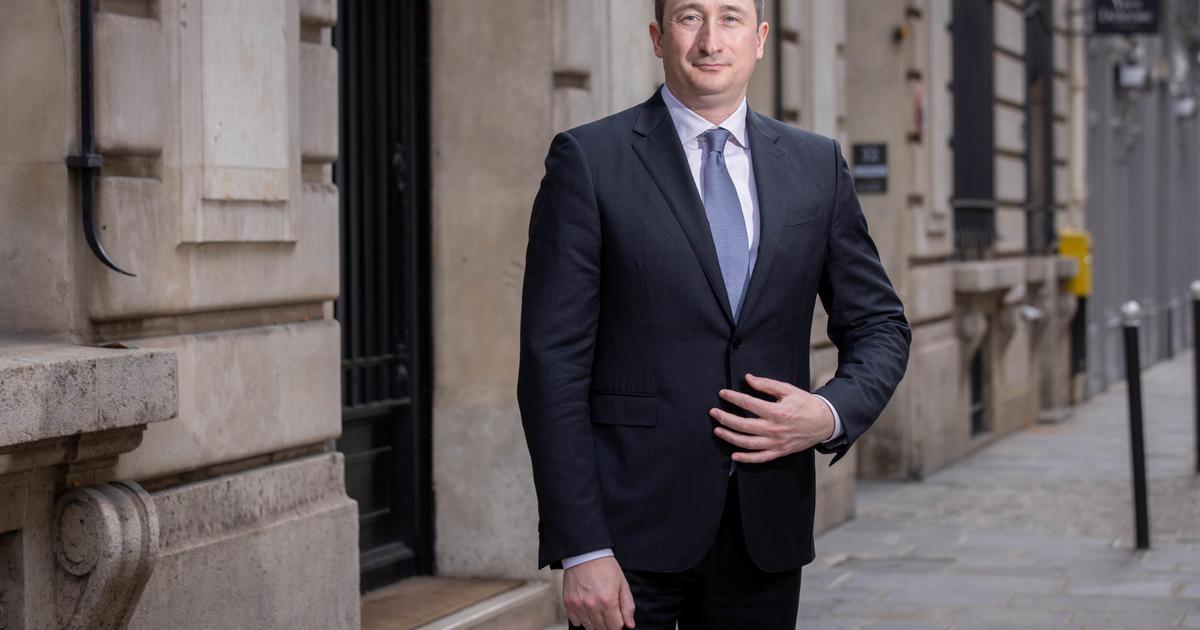The last ballot before the presidential election did not attract crowds, but it is instructive.
The first round of departmental and regional elections took place this Sunday, ten months before the 2022 election. Only one in three voters spoke, unprecedented for a vote (excluding referendum) in France.
In this context, the projections of the polling institutes turned out to be clearly imprecise on several points.
Here are five points to take away from the results.
Abstention, the big winner
More than ever, abstention is acquiring the status of “the first party in France”, an expression regularly used in recent years. 66.6% of voters did not go to the polls on Sunday, 15 points more than in 2015, according to the latest estimate from Ipsos / Sopra Steria for France Télévisions, Radio France and La Chaîne Parlementaire. This rate is even a historic record for an election in France, all ballots combined, and it would reach the impressive level of 88% among 18-24 year olds. Only the referendum for the five-year term, in September 2000, had even less attracted people. French at the polls (69.81% abstention).
The main reasons put forward by those polled are the fact that this election "will not change anything" for them or for their region, dissatisfaction with political parties, a lack of lists defending their opinion, or even because these elections did not interest them, according to the various polling institutes, which rather expected an abstention of around 60%.
All political leaders are unanimously sorry about this finding, which Gérald Darmanin described as "particularly worrying".
"Our collective work must be turned towards the mobilization of the French for the second round", indicated on Twitter the Minister of the Interior.
The level of abstention is of particular concern.
Our collective work must be turned towards the mobilization of the French for the second round.
- Gérald DARMANIN (@GDarmanin) June 20, 2021
Many opposition leaders, such as Christian Jacob and Jean-Luc Mélenchon, also blasted the fact that not all French people had properly received electoral propaganda by mail.
The two providers responsible for this distribution, La Poste and Adrexo, were summoned to Place Beauvau on Monday.
Right-wing leaders reassured
They all three claim to the presidential election, whether they have already declared or are thinking strongly about it.
Valérie Pécresse, Laurent Wauquiez and Xavier Bertrand come out ahead in the first round in their respective regions.
This augurs well for an intense battle to know who will be on the starting line in 2022.
Read alsoRegional: with Bertrand, Pécresse and Wauquiez in the lead at home, the right breathes
The first, current president of the Île-de-France region, seems rather well placed to re-emerge.
It obtains nearly 36% of the vote, largely ahead of its opponents from the National Rally, LREM, and the three leftist formations which arrive above 10%.
His salvation will depend, in particular, on the postponement of the votes of the voters of the majority.
Laurent Wauquiez can really sleep comfortably.
He obtained 43.79% of the votes of the voters of Auvergne - Rhône-Alpes, ahead of the candidate of the Greens (14.45%), and that of the National Rally (12.33%).
Finally, Xavier Bertrand, who left Les Républicains but remains affiliated with the center-right, also comes clearly in the lead in Hauts-de-France (41.39%).
"It'll do it," he whispered Sunday night.
The National Rally looks grim
In view of the polls which placed it very high, the National Rally suffered a real poor performance during this first round.
Marine Le Pen's party comes out on top in only one region (in Provence-Alpes-Côte-d'Azur), far from the 5 or 6 anticipated by the most recent opinion polls.
And very far too, from the 6 regions in which he had turned in the lead in 2015. “We are disappointed with our results,” admitted Jordan Bardella, head of the list in Île-de-France and came second with 13.12% of the results. voice.
Regional in Île-de-France: Jordan Bardella (RN) admits being disappointed with his result in the first round pic.twitter.com/QAIWMNqRIa
- BFMTV (@BFMTV) June 20, 2021
Several reasons may explain this, including the "outgoing bonus" which benefited elected officials who stood for re-election. It also appears that the record abstention did not benefit the RN, contrary to a theory often advanced by certain observers and elected officials. “If we start from the principle that the electorate of the RN is very loyal, it is likely to remain very mobilized. Where it is less simple is that it is sociologically composed of precarious workers and young people, who vote little, ”warned the Parisian political scientist Bruno Cautrès on Friday, June 18.
“Technical issues at the regional level are increasingly complex.
However, one of the Achilles heels of Marine Le Pen and her party is always that it gives the impression of lacking competent managers ”, adds Luc Rouban, researcher at Cevipof and research director at CNRS.
The left does better than resist
The map of France is eloquent: out of thirteen metropolitan regions, the left leads five times (in New Aquitaine, Brittany, Occitanie, Center-Val de Loire and Bourgogne-Franche-Comté).
Better: it seems, each time, to be able to win in the second round, even if it will often have to rely on significant votes.
In several regions, such as Île-de-France, the Greens are ahead of the Socialist Party. The PS can count on its two local “barons” in New Aquitaine and Occitania, Alain Rousset and Carole Delga, who came largely in the lead in the first round. The famous "bonus on leaving" therefore played for the right as for the left. “The low turnout has mostly benefited outgoing presidents, provided they have a good track record. And they were able to take advantage of the health crisis, in particular by distributing masks when France was in difficulty to receive them, ”Bruno Cautrès said on Monday.
"In this vote, something has appeared which seemed unlikely so far: we are not condemned to live the duel between Emmanuel Macron and Marine Le Pen next year", rejoiced this Monday morning on France Inter le first secretary of the Socialist Party, Olivier Faure.
“In terms of electoral potential, the left has regained a lot of ground compared to 2017. Its real problem is its division.
But if it is capable of making a common list, it is not lost for 2022, ”decrypts Luc Rouban.
Bérézina for LREM
Marc Fesneau was presented as the "best hope" of Macronie. However, it only comes fourth in Center Val de Loire. His case illustrates the huge underperformance of the majority in this election. In Hauts-de-France, despite the presence of several ministers - including Eric Dupond-Moretti - on his list, Laurent Pietraszewski only obtained 9.14% of the vote. Less than 10%, therefore insufficient to maintain itself in the second round. Same story in Auvergne - Rhône-Alpes, where the deputy Bruno Bonnel arrives just below this 10% bar. It passes, but very little, in Île-de-France for Laurent-Saint-Martin (11.76% of the vote). "After four years, we are not there yet, we are unable to establish ourselves", lamented Sunday evening to the Parisian a government adviser.
Invited this Monday morning on RTL, government spokesman Gabriel Attal took refuge behind the fact that voters who went to vote did so "for a regional election".
"I did not hear a voter tell me:
I come to send a message on this at the national level
", assured the one who was himself a candidate in Île-de-France.
#LREM: "Regional issues, not national", @GabrielAttal in #RTLMatin with @BSportouch pic.twitter.com/G8Ry1Ra6fR
- RTL France (@RTLFrance) June 21, 2021
“It's a total failure, arguably one of the biggest failures of a majority in an election in France recently. This election shows that we must always reckon with the political forces of
the old world,
”concludes Bruno Cautrès, his eyes already riveted - like everyone else - on 2022.









